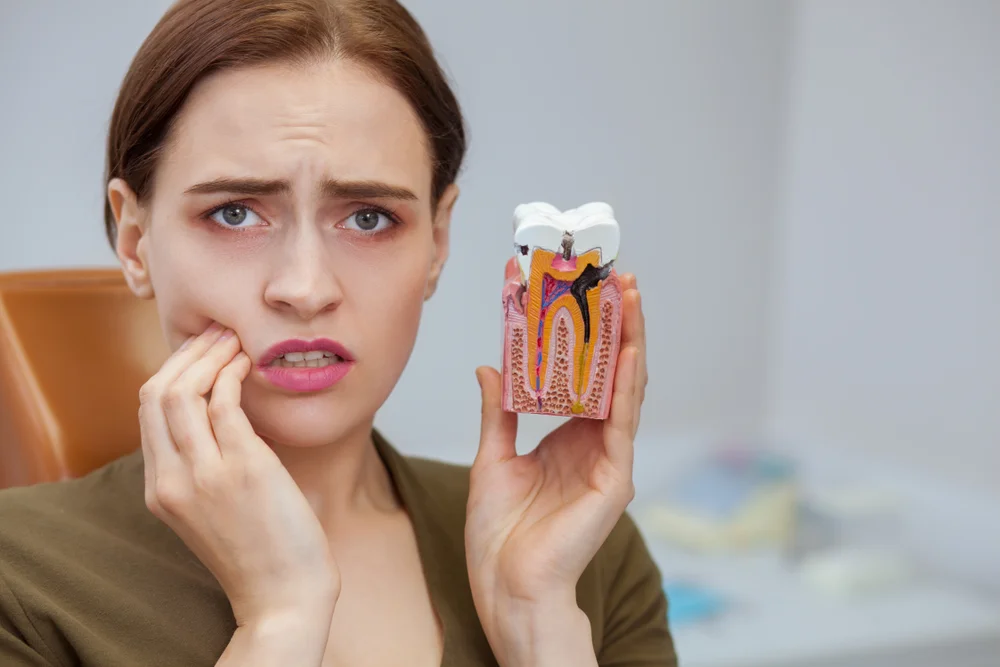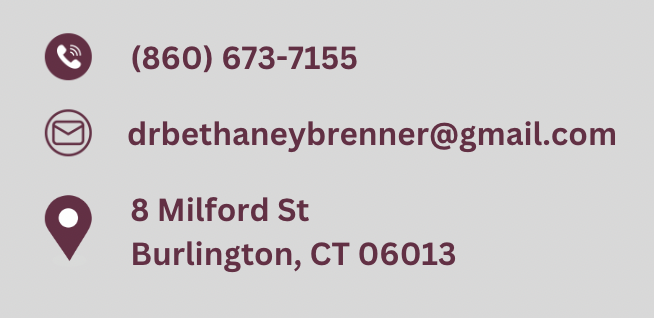The key to managing dental health during pregnancy is access to accurate information. Expectant mothers must be equipped with correct knowledge about handling dental emergencies. It’s important to understand that while pregnancy requires special considerations, it should not prevent you from treating dental concerns promptly and effectively.
Clearing up misconceptions is the first critical step. Many patients believe that dental treatment during pregnancy is inherently risky, and thus, they delay crucial procedures. This delay can make oral health issues worse, which may lead to complex health consequences that could impact the wellbeing of both mother and baby.
It’s necessary to highlight the safety of modern dental practices. With advancements in dental care and a better understanding of pregnancy-related changes, dentists are well-equipped to provide both emergency and routine care. Using specific precautions, such as the right anesthetics and properly timed treatments, allows for safe dental management at any stage of pregnancy.
How Pregnancy Hormones Affect Your Oral Health
Pregnancy-induced hormonal changes bring about significant oral health challenges. Expectant mothers should be aware of these risks, as hormonal changes can noticeably affect their dental condition. Recognizing the specific issues related to these changes is crucial for maintaining oral health during pregnancy.
Increased blood flow to the gums is one primary effect of higher hormone levels. This can result in tenderness and swelling, creating favorable conditions for gum disease and other infections. Pregnant women might notice their gums bleeding more easily, indicating the need for careful oral hygiene and possibly more frequent dental check-ups.
Alongside gum-related concerns, there’s the risk of weakened tooth enamel. Hormonal shifts can alter the mouth’s bacterial balance, leading to increased acid production. This acidity can erode enamel, the hard protective coating on teeth, thereby increasing susceptibility to cavities and decay:
- Increased Gum Sensitivity: Higher hormone levels cause gum tenderness, swelling, and easier bleeding during brushing
- Weakened Tooth Enamel: Hormonal changes alter mouth bacteria, increasing acid production that can damage tooth enamel
- Pregnancy Tumors: Benign gum tissue growths that may interfere with eating or oral hygiene but typically recede after pregnancy
- Higher Infection Risk: Hormonal changes create conditions that make gum disease and oral infections more likely
Additionally, the hormonal surge may lead to abnormal gum tissue growths known as pregnancy tumors, which are benign but can be concerning if they interfere with eating or oral hygiene. These growths typically recede after pregnancy, but need careful monitoring by a dental professional.
The Serious Risks of Ignoring Dental Problems
Addressing dental emergencies during pregnancy is not just about immediate relief, but also about preventing severe health implications. Expectant mothers should be informed of the potential risks that untreated dental issues may have on their health and that of their unborn child.
One primary concern with ignored dental infections is the possibility of these infections spreading to the bloodstream. Once in the bloodstream, these infections can lead to serious conditions such as septicemia. Dental abscesses, if left untreated, can also introduce risks of serious complications, potentially affecting both the mother’s overall health and the pregnancy environment.
The secondary risk associated with ignoring dental emergencies is the direct link to negative birth outcomes. Research has shown connections between poor oral health in expectant mothers and instances of preterm births, as well as babies born with low birth weight. This association emphasizes the essential nature of managing oral health issues quickly during pregnancy.
Why Prevention Is Your Best Defense
Preventive dental care plays a vital role in safeguarding the oral health of pregnant women. Through proactive measures, it’s possible to significantly reduce the risk of dental emergencies. Such care not only maintains dental health but also contributes to the overall well-being of the mother and the developing baby.
An effective oral hygiene routine forms the cornerstone of preventive care. This includes regular brushing with fluoride toothpaste and daily flossing. These habits prevent the build-up of plaque, which can lead to gum disease and tooth decay. By maintaining this routine, expectant mothers can substantially reduce the onset of serious oral health issues.
Adjustments to dietary habits complement a good oral hygiene routine. Reducing the intake of sugary and acidic foods decreases the chance of tooth enamel erosion and decay. Pregnant women should be advised to consume a balanced diet that supports oral health, thus proactively preventing emergencies that arise from poor nutrition.
Vigilance in monitoring any changes or symptoms in oral health is critical. Swelling, pain, or bleeding in the gums are warning signs that should prompt an immediate dental check-up. Early detection and management of these symptoms can prevent them from escalating into serious conditions that could require emergency intervention.
Safe Emergency Dental Care During Pregnancy
Providing emergency dental care during pregnancy must prioritize the safety of both mother and unborn child. This care involves using specialized protocols that reduce risks and reassure the patient of both her safety and that of her developing baby.
One aspect of this safe approach involves the careful use of X-rays. Protective measures, such as wearing a lead apron, ensure minimal radiation exposure. The position of the X-ray equipment should be carefully adjusted, and only essential images are taken to reduce any unnecessary exposure.
Another concern is the use of anesthesia. It’s critical to choose anesthetics that are categorized as safe for pregnant women. Dentists should inform patients about the types of local anesthesia being used and the measures employed to manage dosages effectively:
- Safe Anesthetic Options: Only pregnancy-approved local anesthetics are used, with careful dosage management
- Radiation Protection: Lead aprons and minimal X-ray exposure protect both mother and baby
- Optimal Timing: Non-emergency procedures are typically scheduled during the second trimester for maximum safety
- Emergency Flexibility: Urgent treatments can be adapted at any pregnancy stage with proper precautions
Finally, adapting dental treatments to correspond with the progression of the pregnancy is key. Careful planning allows for urgent procedures to be conducted during the second trimester when it’s typically the safest period for the baby.

Knowing When to Seek Emergency Care
Ensuring timely response to dental emergencies during pregnancy is a critical aspect of prenatal care. Pregnant women must understand which dental problems require immediate attention versus those that can be addressed at a scheduled visit, thus avoiding unnecessary stress and potential health issues.
Severe pain, significant bleeding, or serious infections represent scenarios that demand urgent care. These symptoms could indicate conditions like an abscess or severe gum disease, which can have widespread implications if not promptly treated. Seeking emergency dental care in such cases is crucial to maintaining the health of the mother and the safety of the pregnancy.
On the other hand, minor dental issues such as a lost filling or a minor chip in a tooth often do not require immediate action. However, these should still be communicated to a dental professional who can advise on the appropriate response time. Understanding this urgency ensures that serious conditions are not overlooked and that the dental care provided is both necessary and timely.
Clear guidelines and communication with healthcare providers help eliminate confusion in the decision-making process. When expectant mothers understand what qualifies as a dental emergency, they are better equipped to make informed decisions, thereby protecting their health and that of their unborn child.
The Power of Team-Based Care
Optimal management of dental emergencies during pregnancy is best achieved through a collaborative care model. The partnership between a dentist and an obstetrician ensures that pregnant women receive comprehensive care that considers all aspects of their well-being.
The dentist brings specialized knowledge of oral health and can skillfully identify and treat dental emergencies. They work together with the obstetrician, who has a deeper understanding of the maternal and fetal considerations during pregnancy. This multidisciplinary approach ensures that all treatments are safe and appropriate for each stage of pregnancy.
Furthermore, by collaborating, the two healthcare professionals can agree on the types of medications to prescribe, taking into account the safety for the pregnant patient. The dentist can recommend certain procedures or treatments, which the obstetrician can review for any potential risks to the pregnancy, resulting in a care plan that prioritizes the health of the mother and the unborn child.
Such an integrated model of care creates a trusting environment for the patient. When expectant mothers see their healthcare providers working together, they gain confidence in their care plan, knowing it is endorsed by experts who understand the complexities of pregnancy.
Building Strong Prevention Habits
Preventive strategies form the core framework for reducing dental emergencies, particularly during pregnancy. Recognizing the power of prevention, expectant mothers can take proactive steps to maintain their oral health and reduce the risk of unexpected dental crises.
Regular dental checkups are critical for the early identification of potential problems. By scheduling routine visits, dental professionals can monitor pregnant women’s oral health status, catching early signs of issues like cavities or gum disease before they develop into emergencies. These visits are opportunities for intervention, like targeted cleanings or treatments that stop the progression of disease.
Education is another fundamental part of preventive care. Pregnant women equipped with knowledge about the warning signs of dental problems are more empowered to act swiftly. Understanding what constitutes an emergency and how to respond is essential. For instance, a loose filling or mild toothache may not be urgent, but persistent pain or swelling requires immediate attention.
Developing solid oral hygiene practices stands as a primary defense against emergencies. Effective brushing and flossing techniques, coupled with wise dietary choices, strengthen teeth against decay and infection. Such habits, when consistently applied, play a substantial role in keeping oral emergencies at bay and foster a healthier environment for the growing baby.
Your Pregnancy Deserves Expert Dental Care
Effective management of dental health during pregnancy is critical to the wellbeing of both the mother and the child. By navigating dental care properly, expectant mothers can ensure a healthier course for their pregnancy and for their own oral health. Access to accurate information stands as a key element in this management process, helping pregnant women understand the safe options for emergency dental care and necessary interventions.
Support from a team of healthcare professionals, which includes both dental and obstetric care providers, is essential. This team ensures that treatments undertaken during pregnancy are safe and that both immediate and long-term health considerations for mother and child are taken into account. Incorporating strategic methods such as education, proactive prevention, and evidence-based treatments results in optimal care.
At Dynamic Family Dentistry, we understand that your pregnancy is a special time that requires expert, compassionate dental care. Our experienced team is specially trained in pregnancy-safe dental procedures and works closely with your obstetrician to ensure both you and your baby receive the safest, most effective care possible. Don’t let dental concerns add stress to this important time in your life – contact Dynamic Family Dentistry today to schedule your pregnancy-safe dental consultation and experience the peace of mind that comes with expert, coordinated care.
Book Your Consultation Today!
Dr. Bethaney B. Brenner DMD
8 Milford St, Burlington, CT 06013
Frequently Asked Questions
Can I undergo dental treatment while pregnant?
Absolutely, you can receive both routine and emergency dental care throughout your pregnancy. Modern dental practices and coordination with your healthcare provider ensure treatment is safe for you and your baby.
What if I have a dental emergency but I’m worried about my baby’s safety?
Your dentist will use pregnancy-safe approaches, including proper anesthesia and X-ray precautions, to treat your emergency and protect your baby.
How can I avoid dental emergencies during pregnancy?
Maintain good oral hygiene, attend regular checkups, and stay aware of your oral health. Taking these steps helps prevent emergencies and ensures both your and your baby’s well-being.





